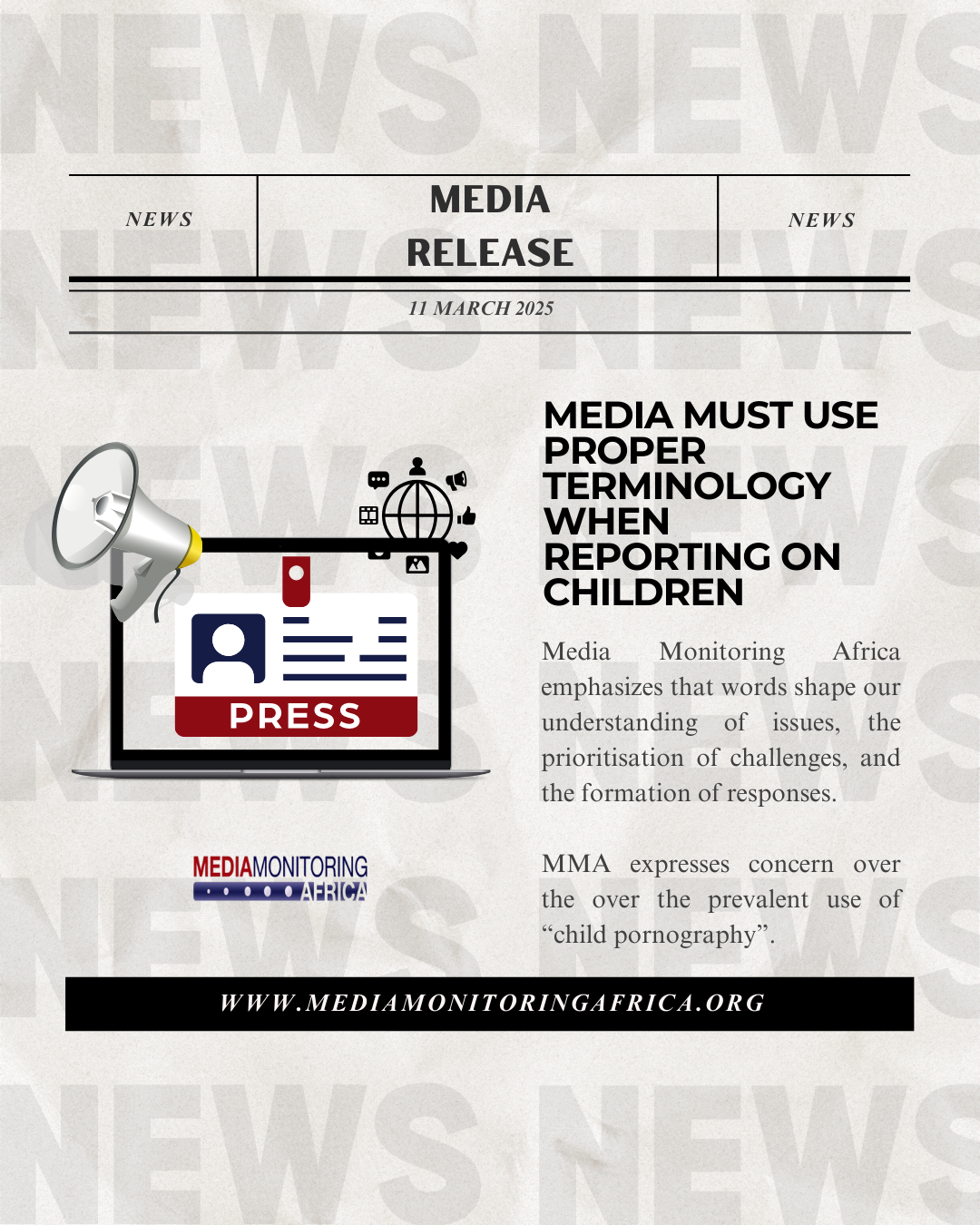PRESS STATEMENT
For Immediate Release
Media Monitoring Africa (MMA) emphasises that words shape our understanding of issues, the prioritisation of challenges, and the formation of responses. The language used in media coverage influences how laws are applied and how policy responses are developed. MMA expresses concern over the prevalent use of the term “child pornography” in news reports concerning the recent arrests of individuals found in possession of large quantities of what should more accurately be termed “child sexual abuse material” (CSAM).
Despite existing legal definitions for various sexual crimes against children, confusion persists around the terminology used to describe the sexual exploitation and abuse of minors. The term “pornography” is typically associated with consenting adults engaging in nudity and sexual activity. When applied to acts involving children, it risks minimising the profound harm inflicted on victims and misleadingly suggests consent, which is never possible in these cases.
Child sexual abuse is a grave offence. Any explicit images or videos depicting children are unequivocal evidence of abuse. Labelling such material as “child pornography” detracts from the severity of the abuse and implies a consensual nature, thereby undermining the criminality of the offence and the significant harm suffered by the child. In cases involving minors, there is no place for the term “pornography”—only abuse and criminality.
As purveyors of accurate, informative, and educational news, journalists and media organisations must adhere to the highest ethical standards in their reporting, particularly when it concerns the welfare of children. Every consideration must prioritise the best interests of the child in all reports involving harm.
MMA urgently calls on journalists, editors, and news organisations to ensure that the best interests of the child are central to their reporting. We also appeal to the Minister of the Department of Justice and Constitutional Development, the Minister of Women, Youth, and Persons with Disabilities, as well as other state actors, legislators, and civil society organisations, to amend existing legislation. In alignment with international best practices, it is imperative that explicit images and videos depicting children be referred to for what they are: abusive material, not “child pornography.”
For media inquiries, contact:
Phakamile Madonsela
Program Manager – Public and Media Skills
📧 phakamilek@mma.org.za
📞 011 788 1278

